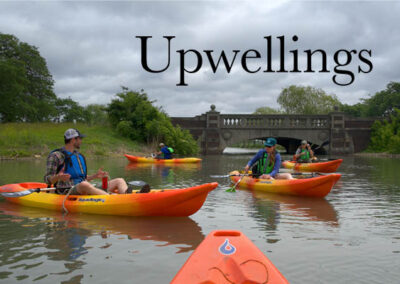
By Heather Triezenberg
Michigan Sea Grant is pleased to announce a new partnership with NOAA’s Great Lakes Environmental Research Laboratory (GLERL) and Cooperative Institute for Great Lakes Research (CIGLR) for management of the Great Lakes Aquatic Nonindigenous Species Information System (GLANSIS). This regional Great Lakes-specific database of aquatic nonindigenous species is a one-stop-shop for information on non-native species within the basin. Making data accessible to researchers, managers, educators, and other stakeholders is an important part of the joint missions of NOAA’s GLERL, CIGLR, and Sea Grant programs.
With this new partnership, Rochelle Sturtevant, Michigan Sea Grant Extension Program’s regional outreach specialist, will become program manager for GLANSIS and will work within the CIGLR Regional Consortium. Planned enhancements to GLANSIS database programming will improve information extraction capabilities, and data updates will ensure the most current state of aquatic nonindigenous species knowledge is being delivered to the public. “GLANSIS is a very important database and resource for the Great Lakes region,” said Deborah Lee, GLERL director. “We are very happy to have Dr. Sturtevant use her expertise in order to update and expand the program and serve even more stakeholders.”

Rochelle Sturtevant has been involved with GLANSIS since its inception.
Sturtevant played a key role in the conceptualization and development of GLANSIS, which has become a signature product of GLERL, while she served as the Great Lakes Sea Grant and NOAA GLERL Regional Liaison. “Aquatic invasive species are a major focus within the Great Lakes basin. Updating and expanding the GLANSIS database will help managers make informed decisions when devising and implementing strategies to prevent, control, and mitigate the introduction and impacts of aquatic invasive species and help protect the natural resources and economic well-being of the Great Lakes,” said Sturtevant.
“The NOAA and Sea Grant partners in the Great Lakes Region have been leaders on regional collaboration, and we are excited to see this collaboration focus on invasive species within the basin,” said Jonathan Pennock, director of NOAA’s National Sea Grant. “NOAA and its Great Lakes partners will continue to work together closely to facilitate communication and information exchange.” Helping to coordinate communication between the groups will be Heather Triezenberg, Michigan Sea Grant program leader; Jennifer Day, NOAA Great Lakes Regional Coordinator; Margaret Lansing, GLERL’s Information Services branch chief; and Jill Jentes, Great Lakes Sea Grant communication chairperson.
For questions, please contact Heather Triezenberg, Michigan Sea Grant Extension Program Leader ([email protected]) or 517-353-5508.


